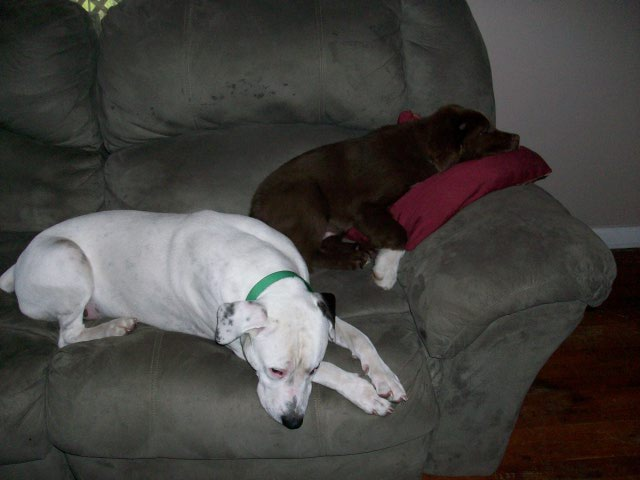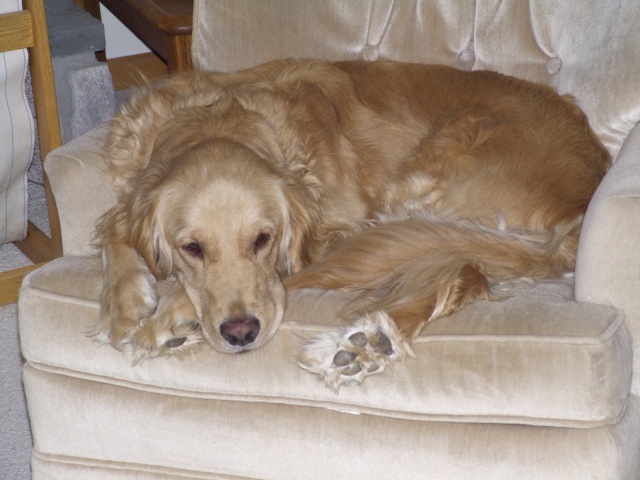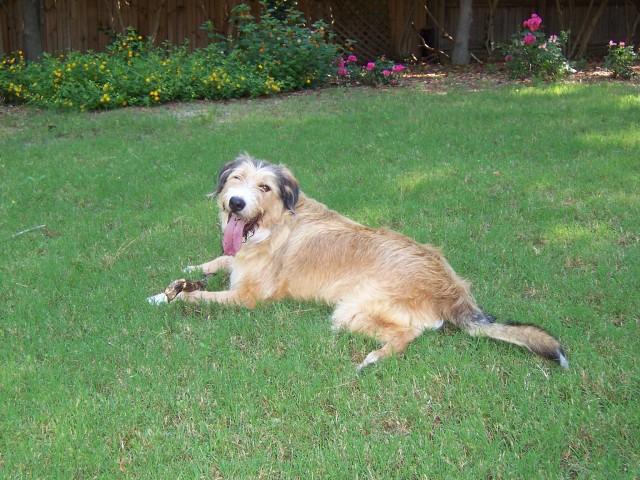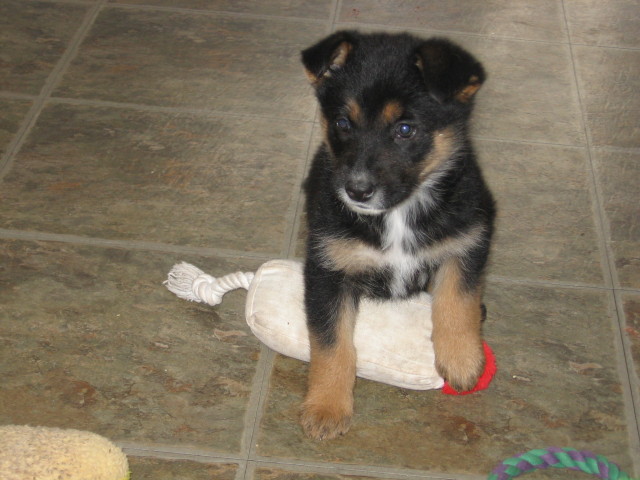QuestionWhen I moved way from home I took one of the family dogs. They had two bitches and two dogs all family. When he was living with my parents he had to be kenneled in the garden because every time he went into the house he marked his territory. He has never done this in the kennel even when the other dogs have been there. He also has never marked in my house where he lives now.
I would love to get a puppy but I any worry that this will start if off again and also would love to know if a bitch or a dog would lessen this. He has lived with me for a couple years and has settle in and has no other problems.
AnswerFirst: is the dog neutered; if not, do it and wait about ten weeks before introducing another dog.
Second: I don't know what breed this dog is. His "marking" in the house may very well have been a total lack of house training or a poor house training effort, or it may have been a reaction to other litter mates (I presume that's what you mean by "all family"?) When dogs from the same litter are kept together, tensions rise because temperament can be so very close that it is difficult (sometimes impossible) for dogs to obtain normal social rank interactions. Marking/urinating indoors can also be a sign of high anxiety: mismanagement of the dog pack by human cohabitants. Any or all of these things might apply in this situation. I'm happy to see the dog has been freed from his garden prison: putting a dog into solitary confinement out in the yard is not humane and always a guaranty that the dog will fail even further.
It's unlikely this dog will begin urinating indoors if you have house trained him properly, HOWEVER there's no guaranty, especially if he isn't neutered. Introducing another puppy is most likely possible but, again, I don't know your present dog's breed or breed type, I don't know if he's been socialized to other dogs (off property) or had any positive reinforcement training. Without this information I can't offer a reliable answer, only suggestions. Take the dog off your property, on leash, and observe his reaction to other dogs. If possible, find a training venue where there is a dog "play group" or enroll in a positive reinforcement novice obedience class. Observe your dog in the presence of other dogs to determine if he is comfortable, not fearful, not defensive, not aggressive. If he passes these "tests", then find a breeder or rescue organization and attempt to locate a younger dog that is appropriate in size/breed type: in other words, if your present dog is over 40 pounds, don't bring in a Toy Poodle. Let the two dogs meet several times off your property but be aware that a very young puppy can be seriously affected by aggression in an older dog, so you must be certain that your dog will not demonstrate aggression (from having done the "tests"). If all goes well and you bring a young puppy (or even adult dog) home, opposite sex choice is the best one. Reinforce your present dog's house training as you house train the puppy: go OUT with both of them, praise and food reward elimination outdoors. Learn about how to live with a puppy appropriately, this is no easy task: you must heavily socialize a puppy every day, confine the puppy safely in your home when you are not there (do not leave the two together) and begin immediately to introduce positive reinforcement training at home. Pay attention to the older dog, don't allow the two dogs to overly bond to one another (especially the puppy). Learn about how to train your puppy (and your present dog) at the following sites:
http://www.siriuspup.com/about_founder.html
http://www.youtube.com/watch?v=Hv38ornzzuQ

 American Bulldog aggression
Question
Buddy and Rez
I have a 2 year old Ameri
American Bulldog aggression
Question
Buddy and Rez
I have a 2 year old Ameri
 aggression in aging dog
Question
Niko
I have a thirteen year old, female, Samoy
aggression in aging dog
Question
Niko
I have a thirteen year old, female, Samoy
 Dog light and shadow chasing
Question
Jenni
My 3 year old Cavalier King Charles Span
Dog light and shadow chasing
Question
Jenni
My 3 year old Cavalier King Charles Span
 anxious dog
Question
Louie
Hi, We adopted a 2 year old male A
anxious dog
Question
Louie
Hi, We adopted a 2 year old male A
 puppy problems
QuestionQUESTION: I am the proud owner of 2 german shep
puppy problems
QuestionQUESTION: I am the proud owner of 2 german shep